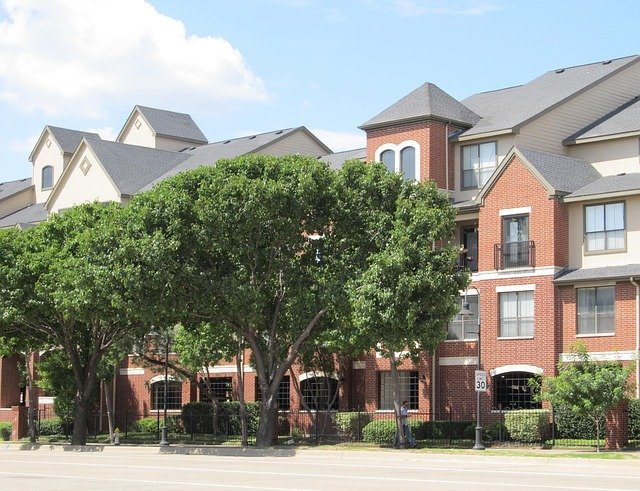1. Check for Moisture Problems
Pests need water to survive and will often be found near places where moisture problems have not been addressed. When possible, require tenants to be proactive in reporting issues of leaking faucets or pipes, pipes that might be sweating, or seals around windows and doors that may be allowing moisture to come in. Windows and doors can be checked from the outside during regular maintenance checks every few months for the best apartment pest control. The same applies to damp basements, sheds, garages, or common areas. Make sure that downspouts are directed away from the building and have proper drainage opportunities.
2. Keep Trash as Tidy as Possible
Rodents are particularly happy when they can find a garbage collection area in an apartment complex that has gone untended. Used as a food source as well as a place to find nesting material, a cluttered pile of dumpsters or garbage cans may as well be a written invitation for mice and rats. Avoid this problem by making routine maintenance checks, being sure that trash bags actually make it into the dumpsters, trash can lids are closed, and piles of rubbish are not found lurking about.
Read More: Dumpster Etiquette: Keep Houston Pests on Their Best Behavior
3. Seal Entry Points for Pests
Be sure that all of your apartment units are as secure from pests as possible by sealing entry points with caulk, copper mesh, or sheet metal. This may include dryer vents, air conditioning or heating ducts, as well as general sealing of cracks in windows and doors. Perform seasonal checks to make sure that window and door screens do not contain holes and repair or replace them as necessary.
4. Write Cleanliness into Lease Agreements
Controlling pests in multi-unit living spaces requires that management, staff, and residents all cooperate together. If it is not already written into your contract or lease agreements, consider adding a clause that includes expectations of cleanliness in order to keep pests away. This would include expectations regarding trash removal, sanitation, housekeeping, and reporting of issues or concerns that could lead to pest problems.
5. Listen to Your Tenants
Even if it seems like complaining, tenants who report pest control problems should be quickly heeded in order to keep a small issue from turning into an infestation. For instance, roaches are able to move from one apartment unit to the next simply through ceilings and walls that are shared. If a roach problem happens in one unit, then it is not likely to be contained and all affected units will need to be treated a minimum of three times in order to eliminate the pests during each phase of the life cycle. The sooner a problem like this is treated, the better, so listening to a tenant’s complaints about pests is a smart idea as they are your eyes and ears.
Of course, prevention always works as the best form of pest control, but sometimes critters can get into your property even if you do your best to try to stop them. Calling in a pest control professional is the best way to safely rid your condo or apartment property of pests as well as actively preventing them in the future.


